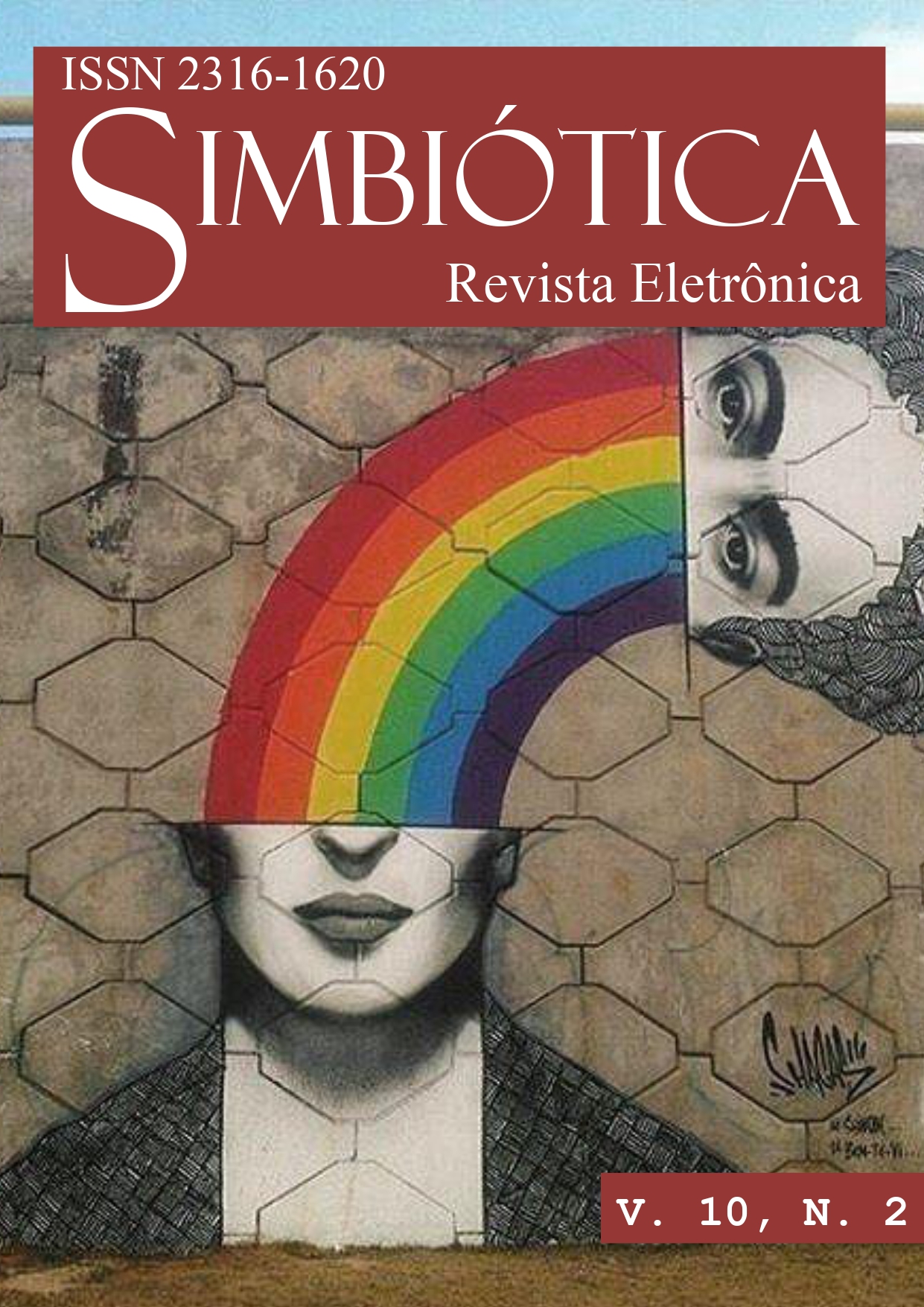Of activism and political resistance. Epistemic (in)justices in the discourses of trans* women
Epistemic (In)justice, a key concept to address trans* memory: The case of the dictatorship and post-dictatorship in Chile
DOI:
https://doi.org/10.47456/simbitica.v10i2.39554Keywords:
epistemic injustice, trans*, LGBTIQA , testimonyAbstract
The life experiences of communities of gender-based dissidence have historically been silenced. This means that the State, its institutions and the social world are unaware of the demands of these groups and their search for justice and reparation. Thanks to the concept of “epistemic injustice” proposed by Miranda Fricker (2017), it is possible to reflect on these types of violence from a perspective that gives us the necessary tools to attend to and address the urgent needs of the LGBTIQA+ population with testimonial sensitivity. Through the work of trans* women’s testimonies, this article seeks to analyze the agentic self-construction of these protagonists, identify their political demands and the responses they have received.
Downloads
References
Achúgar, H. (2002). “Historias paralelas/ejemplares: la historia y la voz del otro”. En J. Beverley- H. Achúgar (eds.), La voz del otro. Guatemala, Ediciones Papiro, pp. 61-83.
Ávila, Mariela. (2015). “El testimonio y su dimensión filosófica: producciones de sentido sobre las dictaduras militares del Cono Sur”. En Revista Kamchatka, pp. 633-649.
Benavente, Anastasia. (2021). Intervención Sindicato Amanda Jofré – Comisión de Derechos Humanos, Convención Constituyente 25 de agosto. Recuperado de:
https://convencion.tv/video/comision-derechos-humanos-n22-pm-subcomision-verdad- historica-reparacion-y-garantias-de-no-repeticion-convencion-constitucional-miercoles- 25-de-agosto-2021
Berkins, L. y Maffía, D. (2009). Sexualidades migrantes: Género y transgénero. Buenos Aires: Librería de Mujeres Editoras.
Beverley, John. (1987). “Anatomía del testimonio”. En Revista de critica literaria latinoamericana. 25, pp. 7-16.
Bourdieu, Pierre. (1989). “Espacio social y campo del poder”. En Razones prácticas sobre la teoría de Acción. Buenos Aires: Siglo XXI Editores.
Cabral, Mauro. (2010). “Ante la ley”. Página 12. 30/07/2010. Disponible en:
https://www.pagina12.com.ar/diario/suplementos/soy/1-1515-2010-07-30.html
Chamorro, A., Suárez, G. y Unger, B. et.al. (2021). “Morir dos veces: injusticia epistémica e identidad de género en Colombia”. En Universitas Philosophica, 38 (77), pp. 15-41.
Eltit, Diamela. (2003). “La Familia Galán”. Cruce de lenguas: sexualidades, diversidad y ciudadanía (2007). Ed. Kathya Araujo. LOM Ediciones.
Figari, Carlos. (2010). “El movimiento LGBT en América Latina: institucionalizaciones oblicuas”. En Astor Massetti, Ernesto Villanueva y Marcelo Gómez (comp.), Movilizaciones, protestas e identidades políticas en la Argentina del bicentenario. Buenos Aires: Nueva Trilce.
Fricker, Miranda. (2017). Injusticia epistémica: el poder y la ética del conocimiento. Barcelona, Herder Editorial.
Garrido, Juan. (2016). “Historias de un pasado cercano. Memoria colectiva, discursos y violencia homo-lesbotransfóbica en la dictadura militar y transición democrática en Chile”. En Documento de Trabajo Instituto de Ciencias Sociales n° 24. Universidad Diego Portales
Hiner, H. y Garrido, J. (2019). “Antitrans State Terrorism: Trans and Travesti Women, Human Rights and Recent History in Chile”. En Transgender Studies Quarterly 6:194-209.
Johnson, Marsha P. y Rivera, Sylvia. (2021). Travestis callejeras de acción revolucionaria: supervivencia, revuelta y lucha cuir antagonista. Santiago, Invertido Ediciones.
Medina, Jose. (2013). The Epistemology of Resistance: Gender an Racial Oppression, Epistemic Injustice and Resistant Imaginations. Oxford University Press.
Mott, Luiz Roberto. (1996). Epidemic of Hate: Violations of the Human Rights of the Gay Men, Lesbians and Transvestities in Brazil. San Francisco: Grupo Gay de Bahía/ International Gay and Lesbian Human Rights Commission.
Murguía, Adriana. (2016). “Injusticias epistémicas y teoría social”. En Revista Dilemata, 8 (22), pp. 1-19.
Parada, Silvia. (2021). “La lucha por los derechos”. En Fontey, K., Parada, S. y Sepúlveda, C., Otras Vidas, Activismo y Resiliencia Trans en Chile. Santiago, pp. 40-67.
Pizarro, Carolina. (2017). “Formas narrativas del testimonio”. En Scarabelli, L. y Capellini, S. (eds.) Donde no habite el olvido: herencia y transmisión del testimonio en Chile. Milán, Ledizioni.
Blas Radi. (2019). “Políticas del conocimiento: hacia una epistemología trans*”. En López,
Mariano (comp.) Los mil pequeños sexos. Intervenciones críticas sobre políticas de género y sexualidades. Buenos Aires: EDUNTREF.
Rizki, Cole. (2019). “Latin/x American trans studies: toward a Travesti-Trans analytic”. En Transgender Studies Quarterly 6: 145–155.
Rodríguez, Antoine. Epistemografías trans*. En prensa.
Schneider, E. et al. (2022). Proyecto de Resolución Nº307. Cámara de Diputados de Chile. Recuperado de:
https://www.camara.cl/verDoc.aspx?prmId=7345&prmTipo=RESOLUCION
Simonetto, Patricio y Butierrez, Marce. (2022). “The archival riot: Travesti/Trans* audiovisual memory politics in twenty-first-century Argentina”. En Memory Studies, pp. 1-16.
Soto, Alejandra. Entrevista en Rara colectiva. 10 de septiembre de 2022. Recuperado de: https://www.instagram.com/reel/CiVIjrCALSJ
– (2021). Intervención Sindicato Amanda Jofré – Comisión de Derechos Humanos, Convención Constituyente 25 de agosto. Recuperado de:
https://convencion.tv/video/comision-derechos-humanos-n22-pm-subcomision-verdad- historica-reparacion-y-garantias-de-no-repeticion-convencion-constitucional-miercoles- 25-de-agosto-2021
Downloads
Published
How to Cite
Issue
Section
License
Copyright (c) 2023 Consuelo Diaz

This work is licensed under a Creative Commons Attribution-NonCommercial 4.0 International License.
Autores que publicam nesta revista concordam com os seguintes termos:
a. Autores mantém os direitos autorais e concedem à revista o direito de primeira publicação, com o trabalho simultaneamente licenciado sob a Creative Commons - Atribuição-NãoComercial 4.0 Internacional.
b. Compartilhar - copiar e distribuir o material em qualquer meio ou formato.
Adaptar - remix, transformar e construir sobre o material para qualquer finalidade, inclusive comercial.
c. Autores têm autorização para assumir contratos adicionais separadamente, para distribuição não-exclusiva da versão do trabalho publicada nesta revista (ex.: publicar em repositório institucional ou como capítulo de livro), com reconhecimento de autoria e publicação inicial nesta revista.
d. Autores têm permissão e são estimulados a publicar e distribuir seu trabalho online (ex.: em repositórios institucionais ou na sua página pessoal) a qualquer ponto antes ou durante o processo editorial, já que isso pode gerar alterações produtivas, bem como aumentar o impacto e a citação do trabalho publicado (Veja O Efeito do Acesso Livre).
Authors who publish in this journal agree to the following terms:
a. Authors retain the copyright and grant the magazine the right of first publication, with work simultaneously licensed under the CCreative Commons - Atribuição-NãoComercial 4.0 Internacional.
b. Share - copy and distribute the material in any medium or format.
Adapt - remix, transform and build on the material for any purpose, including commercial.
c. Authors are authorized to take additional contracts separately, for non-exclusive distribution of the version of the work published in this journal (eg, publish in institutional repository or as a book chapter), with acknowledgment of authorship and initial publication in this journal.
d. Authors are allowed and encouraged to publish and distribute their work online (eg.: in institutional repositories or on their personal page) at any point before or during the editorial process, as this can generate productive changes as well as increase the impact and the citation of the published work (See The Effect of Free Access).














